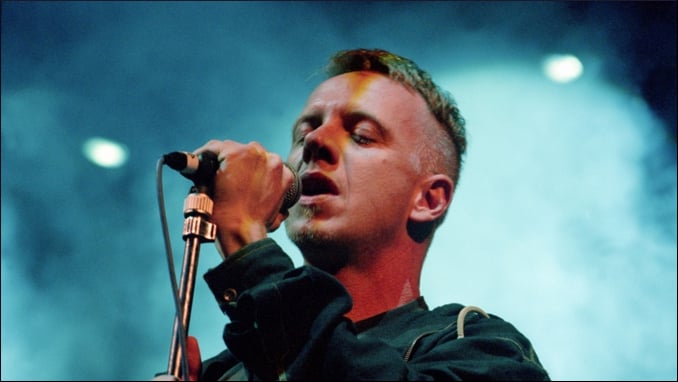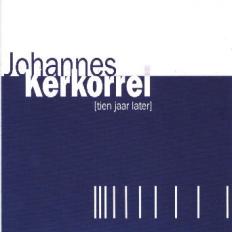South African singer-songwriter, journalist, and playwright Johannes Kerkorrel (whose surname means “church organ”) was born Ralph John Rabie. He won three South African Music Awards, including a posthumous Lifetime Achievement Award in 2013. He was the only white artist to perform at Nelson Mandel’s inauguration, singing “Halala Africa” in 1994. He was found hanging on November 2002, and his suicide has come under great scrutiny, leading to the movie and book Who Killed Johannes Kerkorrel?
“Halala Africa” begins with Kerkorrel picking at his guitar, as he calmly and simply sings of a historical journey through the changes that befell Africa, starting off when the world was young, the horizon was wide and open, and all was green south of the equator, green being widely accepted as the color of growth and opportunity. Kerkorrel explains that, in those days, one could hear the call of women over the hills, and at this point the women’s melodic call is introduced. The chorus begins with the word “halala,” which is said to mean “celebrate.” It is also an Afrikaans colloquial term, used towards children when they misbehave as a means of threatening to report their deeds to their parents or guardians. Additionally, “halala” happens to be a monetary unit in Saudi Arabia, which too would make sense, as the song endorses the idea of Africa being ruined for financial gain. On the other hand, “halala” is also heard in African churches, where it means “hallelujah,” and thus, “Praise God, eternal is our Africa.” The song could therefore be interpreted as a prayer to the Father reporting on deeds carried out in Africa, which shines a light on exactly which “Father” the mothers refer to during the chorus, as they hush their children back to sleep by saying, “Father will return, we shall stay with him. Father will return, we shall all stay, hmmm-hmmm.”
“Halala Africa” begins with Kerkorrel picking at his guitar, as he calmly and simply sings of a historical journey through the changes that befell Africa, starting off when the world was young, the horizon was wide and open, and all was green south of the equator, green being widely accepted as the color of growth and opportunity"
Kerkorrel continues on his journey through time, as he sings about the arrival of ships from the west, signifying the coming of Jan van Riebeeck and the Dutch East Indian Company in 1652. The “white sails” Kerkorrel mentions emphasize that these men arrived in peace, at first seeking only food and water, as –as the Cape was the perfect halfway point between East and West, but—but then they stayed and demandedstaying and demanding so much more. Kerkorrel names South Africa’s main resources: diamonds, coal, gold, and precious metals. He adds that people willingly became slaves to earn an income digging tunnels. Currently, mineworkers in South Africa are on strike, bringing the country to its knees. Their actions are justified by a history of cheap black labor, responsible for the continent’s most sophisticated economy but still living in poverty and slaving for a penance. Kerkorrel ends his song with a look at the barbed-wire fences that now stretch across the vast grasslands. From the elephant to the oryx, all animals bow to the powerful game hunter and his huge gun, until only silence remains and prevails.

This is such an incredible song, truly magnifying the talent of an artist who was once a major figure in the anti-Apartheid era. He was the maverick behind the Voëlvry counter-culture movement, the original Afrikaner who stood up and proclaimed, loudly and proudly, “Afrikaners is Cool!” He not only turned his back on Apartheid, but also led a generation of Afrikaners into a new South Africa, purely through his ingenious musical abilities.



